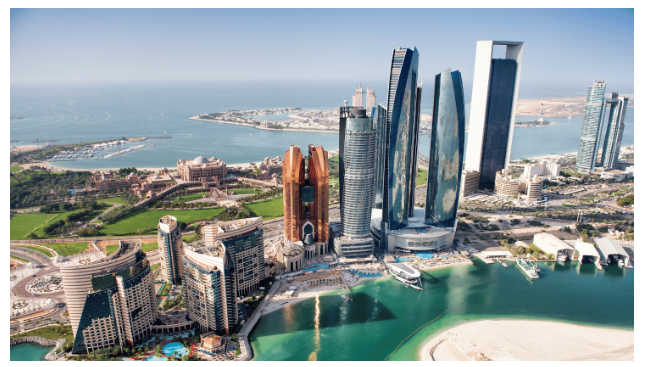Investing in UAE Free Zones: Dubai, Abu Dhabi, and Sharjah Options
If you’re considering a business setup in freezone areas within the UAE, you’ll find that each emirate offers unique advantages for foreign investors. The UAE, known for its vibrant economy and investor-friendly policies, has established free zones across its cities to attract businesses and foster innovation. Free zones provide companies with various incentives, including 100% foreign ownership, tax exemptions, and simplified business regulations. For investors, Dubai, Abu Dhabi, and Sharjah are among the top choices due to their diverse offerings and strategic locations. Here’s an overview of the benefits, unique opportunities, and top free zone options in each of these emirates.
- The Advantages of Investing in UAE Free Zones
Free zones are unique areas within the UAE where businesses benefit from relaxed regulations and special incentives designed to attract foreign investment. The key advantages include:
- 100% Ownership: Unlike onshore businesses, free zone companies can be entirely owned by foreign investors.
- Tax Benefits: Many free zones offer exemptions on corporate and income taxes for specified periods.
- Repatriation of Profits: Investors can repatriate all profits and capital, which increases financial flexibility.
- Simplified Business Setup: Free zones are known for streamlined procedures, making it easier to establish and manage companies.
- Diverse Industry Options: Many free zones cater to specific industries, providing tailored infrastructure and support.
- Dubai Free Zones: A Global Business Hub
- Dubai is known worldwide for its state-of-the-art infrastructure and strategic location, making it a prime choice for investors. Dubai’s free zones offer a variety of options across industries such as technology, finance, logistics, and media. Here are some key free zones in Dubai:
- Dubai Multi Commodities Centre (DMCC): DMCC is one of the largest and most sought-after free zones in Dubai, especially for trade and commodity-focused businesses. It’s home to over 20,000 companies and offers specialized facilities for commodities trading, from precious metals to agricultural goods.
- Dubai Airport Free Zone (DAFZA): Strategically located next to Dubai International Airport, DAFZA is ideal for logistics, aviation, and trade companies. DAFZA provides easy access to global markets, with special warehousing and logistics support.
- Dubai Silicon Oasis (DSO): Known as the tech hub of Dubai, DSO is a great option for companies focused on IT, electronics, and digital technology. DSO offers an integrated technology park with smart infrastructure and business support tailored for innovation and research.
- Dubai International Financial Centre (DIFC): As one of the leading financial hubs in the Middle East, Africa, and South Asia, DIFC attracts global financial institutions, banks, and fintech startups. It has a regulatory framework designed to support financial services and includes benefits like a common-law framework and zero tax on profits.
- Abu Dhabi Free Zones: Business and Innovation at the Capital
As the capital of the UAE, Abu Dhabi offers significant resources, infrastructure, and a forward-looking approach to business. Free zones here are designed to align with the government’s vision for innovation, sustainability, and industrial development.
- Khalifa Industrial Zone (KIZAD): Situated near Khalifa Port, KIZAD is the largest industrial zone in Abu Dhabi. It offers strategic access to shipping routes and is an ideal choice for manufacturing, logistics, and warehousing industries. KIZAD’s competitive utility rates and customizable land leases make it attractive for large-scale industrial operations.
- Abu Dhabi Global Market (ADGM): As a global financial center, ADGM has a unique legal system based on English common law, which appeals to international banks, asset management firms, and financial institutions. It also provides a digital-first approach to business licensing, with minimal paperwork.
- Masdar City Free Zone: This zone is dedicated to sustainability and clean technology. Businesses here benefit from modern, energy-efficient facilities and support for research and innovation in sustainable technologies. Masdar City attracts companies specializing in renewable energy, urban planning, and environmental services.
- twofour54: Catering primarily to the media and entertainment industry, twofour54 is Abu Dhabi’s media free zone. It offers incentives for content creation companies, advertising, broadcasting, and media production, and provides direct support through initiatives like the Creative Lab.
- Sharjah Free Zones: Affordability and Versatile Industry Focus
Sharjah’s free zones are known for their affordability and diverse industry focus, making them ideal for small and medium-sized enterprises (SMEs). Sharjah’s proximity to Dubai also makes it a strategic choice for businesses seeking cost-effective alternatives while retaining access to the larger Dubai market.
- Sharjah Airport International Free Zone (SAIF Zone): Located adjacent to the Sharjah International Airport, SAIF Zone is excellent for logistics and trading businesses. It offers flexible packages, including shared offices and warehouses, making it ideal for startups and SMEs.
- Hamriyah Free Zone: One of the UAE’s largest industrial free zones, Hamriyah is popular for companies in manufacturing, petrochemicals, and maritime industries. Hamriyah Free Zone offers access to a deep-water port and competitive pricing, making it a strategic choice for heavy industries and large-scale operations.
- Sharjah Media City (Shams): Shams is dedicated to the creative and media industries, providing licensing options for freelancers, SMEs, and media production companies. Shams offers affordable packages with flexible office space, attracting entrepreneurs in film, design, digital marketing, and similar fields.
- How to Choose the Right Free Zone for Your Business
When selecting a free zone, it’s essential to consider factors such as industry focus, location, and long-term scalability. Here are some tips:
- Identify Your Industry Needs: Many free zones specialize in specific industries. For example, Dubai Silicon Oasis is ideal for tech businesses, while Masdar City is suited for sustainability-focused companies.
- Evaluate Location and Access: Businesses needing close proximity to international ports may benefit from zones like KIZAD or Jebel Ali Free Zone. Similarly, access to a major airport may be a priority for logistics businesses, in which case Dubai Airport Free Zone or Sharjah’s SAIF Zone may be preferable.
- Consider Long-Term Growth: Look at the scalability options in each free zone. Some zones offer flexible leasing terms, enabling businesses to expand their operations over time.
- Assess Cost-Effectiveness: Free zones in Sharjah tend to offer more affordable packages, which may be advantageous for SMEs and startups. While Dubai and Abu Dhabi offer prime locations, Sharjah provides cost-effective alternatives with access to critical markets.
- Conclusion
Investing in UAE free zones is a strategic choice for international businesses looking to establish a presence in the Middle East. With options in Dubai, Abu Dhabi, and Sharjah, investors can find the ideal free zone based on their industry needs, growth objectives, and budget. From the high-tech infrastructure of Dubai’s free zones to the industrial focus of Abu Dhabi and the affordable packages in Sharjah, each emirate provides a unique business environment. Choosing the right free zone will depend on careful analysis of location, industry support, and long-term scalability—ensuring a solid foundation for success in the UAE.




